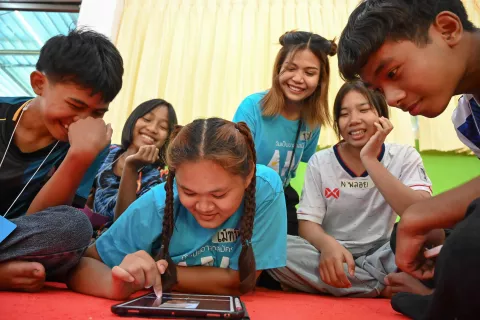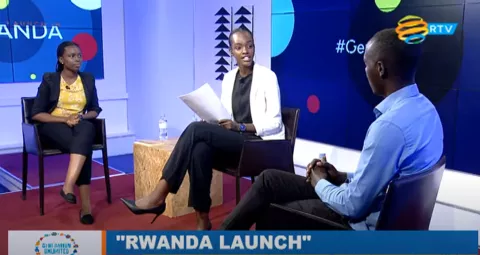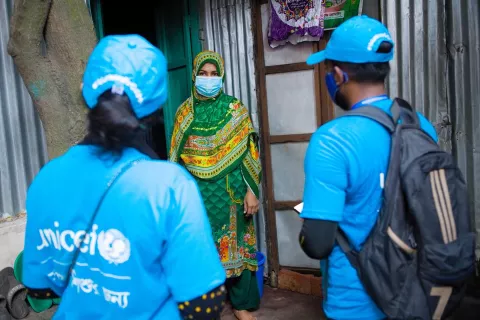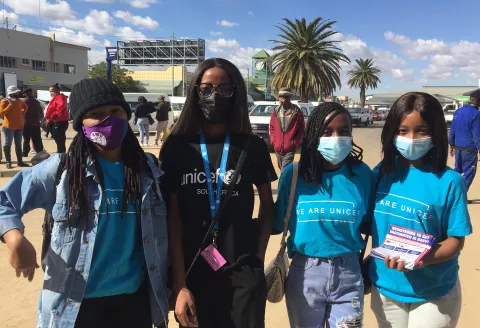From the frontlines: the battle against COVID-19 misinformation
Tackling the spread of misinformation on COVID-19 and the incoming vaccines
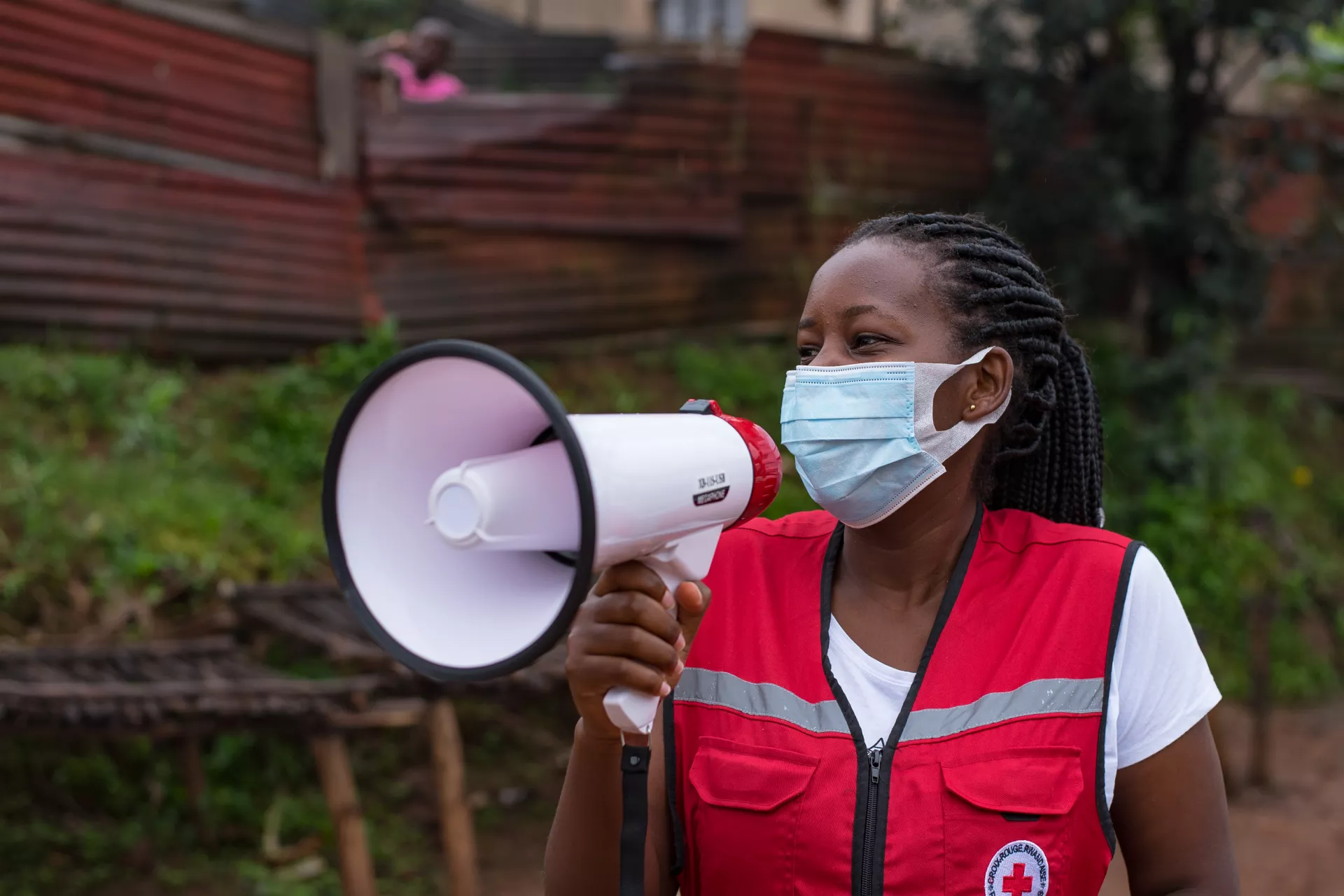
KIGALI, RWANDA - It’s a foggy, rainy Friday morning when Justine, a volunteer, gets ready to head over to her community market in Gatsata, just a couple minutes away from Nyabugogo. She puts on her jacket, grabs her phone and megaphone and begins the steep climb on foot to start her day. As she climbs up the hill she notices someone with their mask fitted incorrectly, and she quickly reminds them that for a mask to work effectively, it needs to cover their nose.
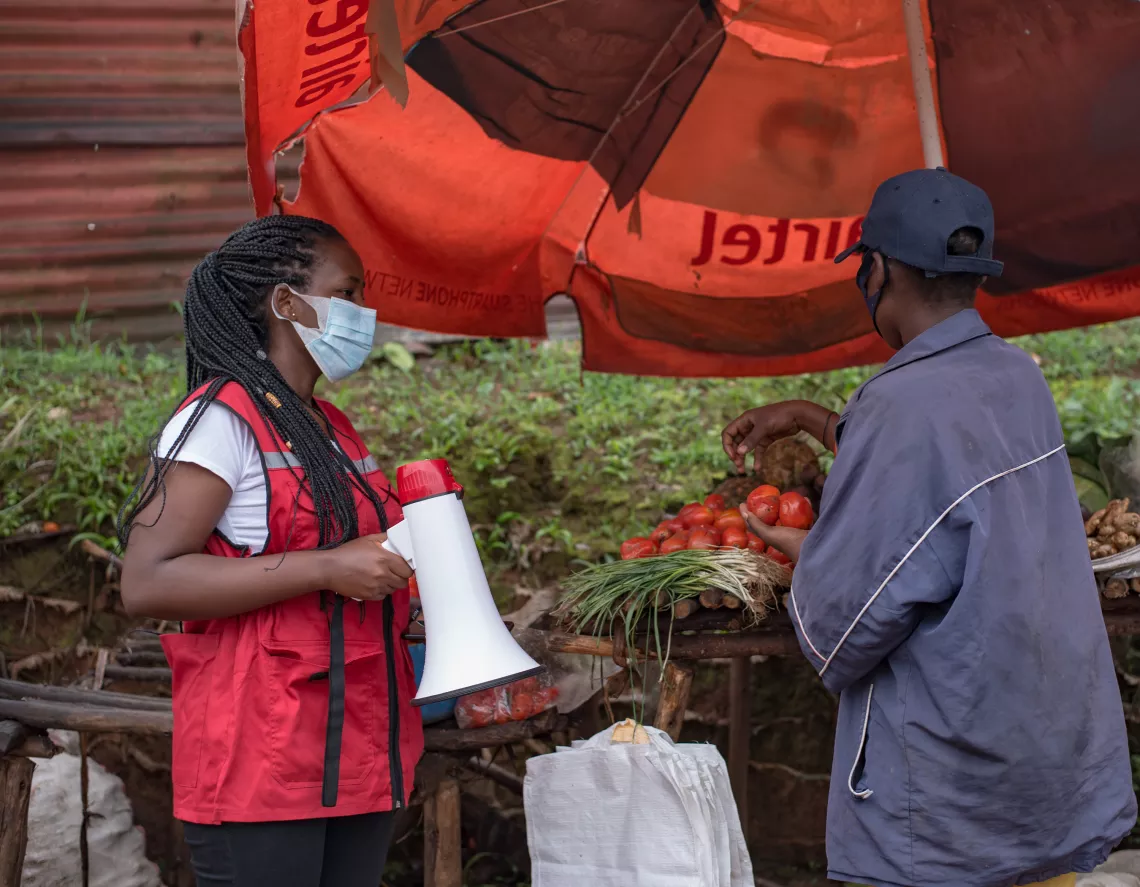
As the world at large, and Rwanda in particular, endures a surge in COVID-19 cases, UNICEF, with support from the Government of Japan, is working with partners such as Red Cross to counter the spread of COVID-19 and the misinformation surrounding it.
With the first shipment of vaccines having arrived in Rwanda earlier this month through the COVAX initiative, this work is more vital than ever.
The volunteers traverse their respective neighbourhoods with smartphone and megaphone in hand, educating their respective community about COVID-19 and tackling misconceptions related to it, while also harvesting valuable data about knowledge, attitudes and practices around it.
“I begin my day in the morning at the market and walk around my community throughout the day with a megaphone. Most times, people are already practicing social distancing, but many are still struggling to wear their masks properly. When I’m deployed in rural areas, some think I am the police so they quickly put on their masks. I do not want them to fear me so I begin to educate them on what the benefits of wearing a mask are and why they should wear them correctly.” Justine explains.
Even with the rain, the streets are bustling as people start their day. Some are opening up their shops and others take to the market to do their daily shopping. Since it’s early, Justine avoids using the loud megaphone. Instead, she speaks directly with the people close to her.
“People in remote areas have limited access to information around the virus. Some think that the virus does not exist at all so it is extremely important for us to educate them.”
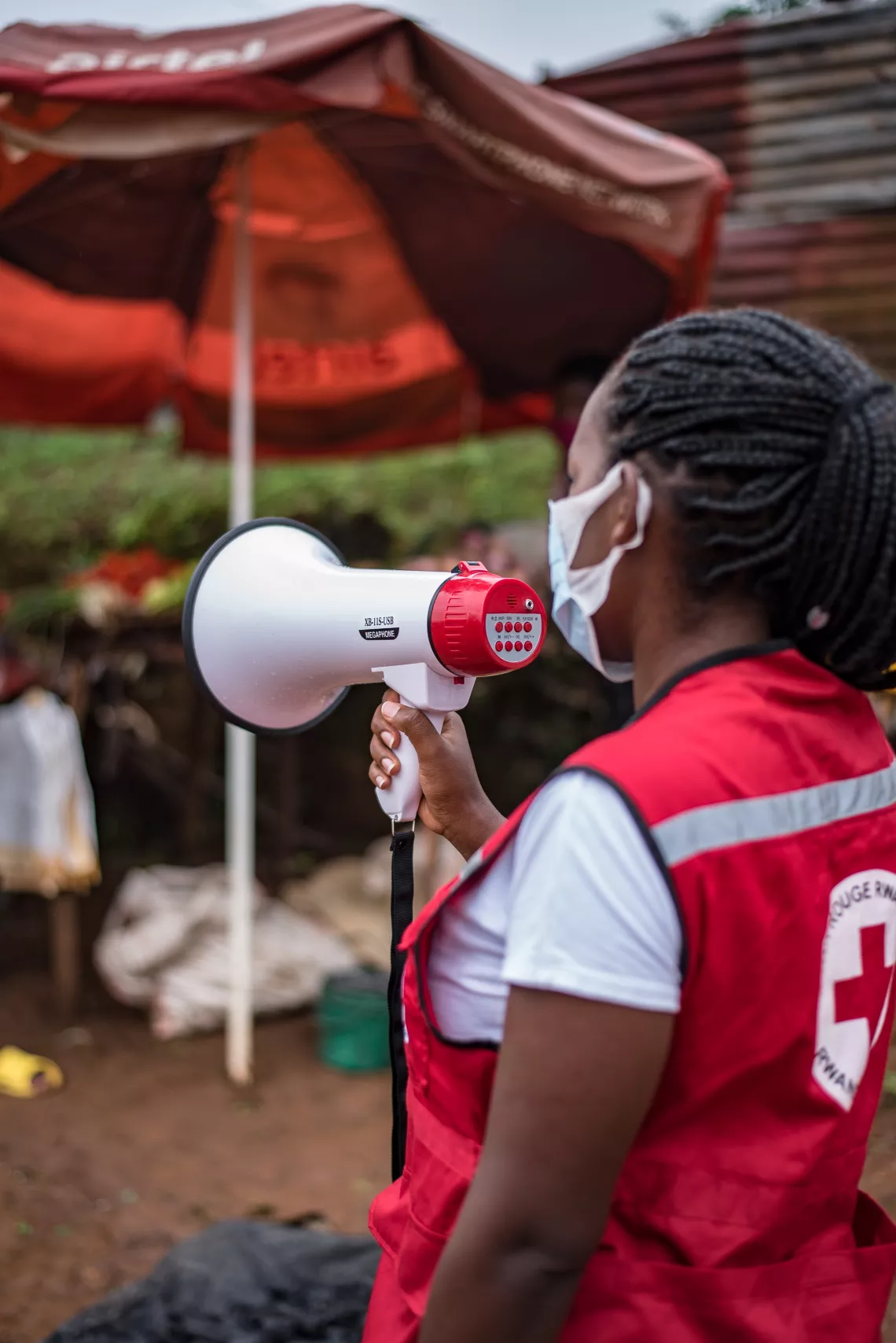
Across town, Valens, an exuberant young man, is another volunteer who helps spread awareness about COVID-19 in his local community. His witty and lively character easily engages the people around him. Today he is working alongside Faustin, a data collector.
As the day continues and approaches noon, Valens takes to the streets of Kimironko, a busy suburb with Faustin. “In the mornings I have a lot of energy, so I use my voice and, since it is a rainy day, most people have taken shelter so I go door to door. When I begin to tire, I use the pre-recorded messages. When I began to volunteer last year, not many knew how to wash their hands properly, people were not wearing masks, but as one can see, all the shops on these streets now have handwashing stations and everyone is wearing their masks properly” says Valens proudly.
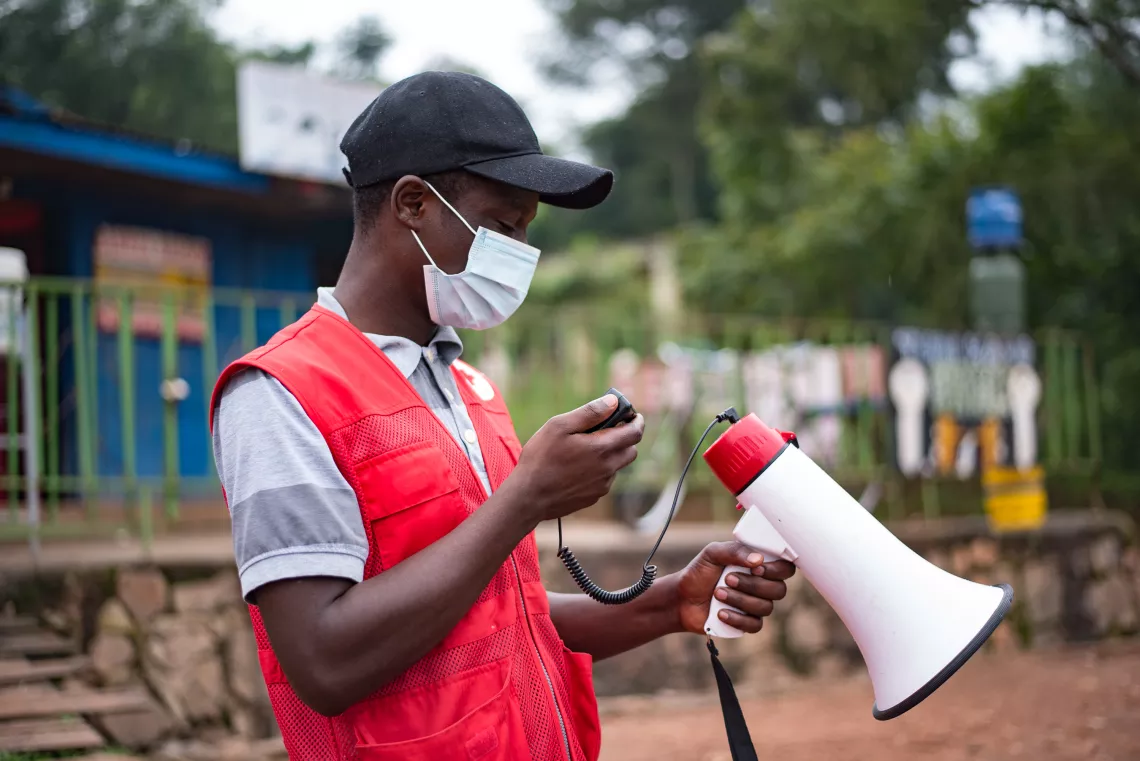
As Valens plays the pre-recorded messages, Faustin crouches next to a store owner, Virginie, with a questionnaire on his phone. He asks her “how many masks do you have at home?”
This is one of the questions that UNICEF and the Red Cross have put together to collect data from different demographics on their current knowledge about COVID-19. After Virginie’s answers are collected, Faustin proceeds to another man standing in front of a kiosk and asks the same questions.
After asking questions about the importance of practices such as handwashing, social distancing, attitudes towards people who have contracted COVID-19 and towards COVID-19 vaccines, the data collectors send the information back to analysts to help them plan where to focus on raising awareness.
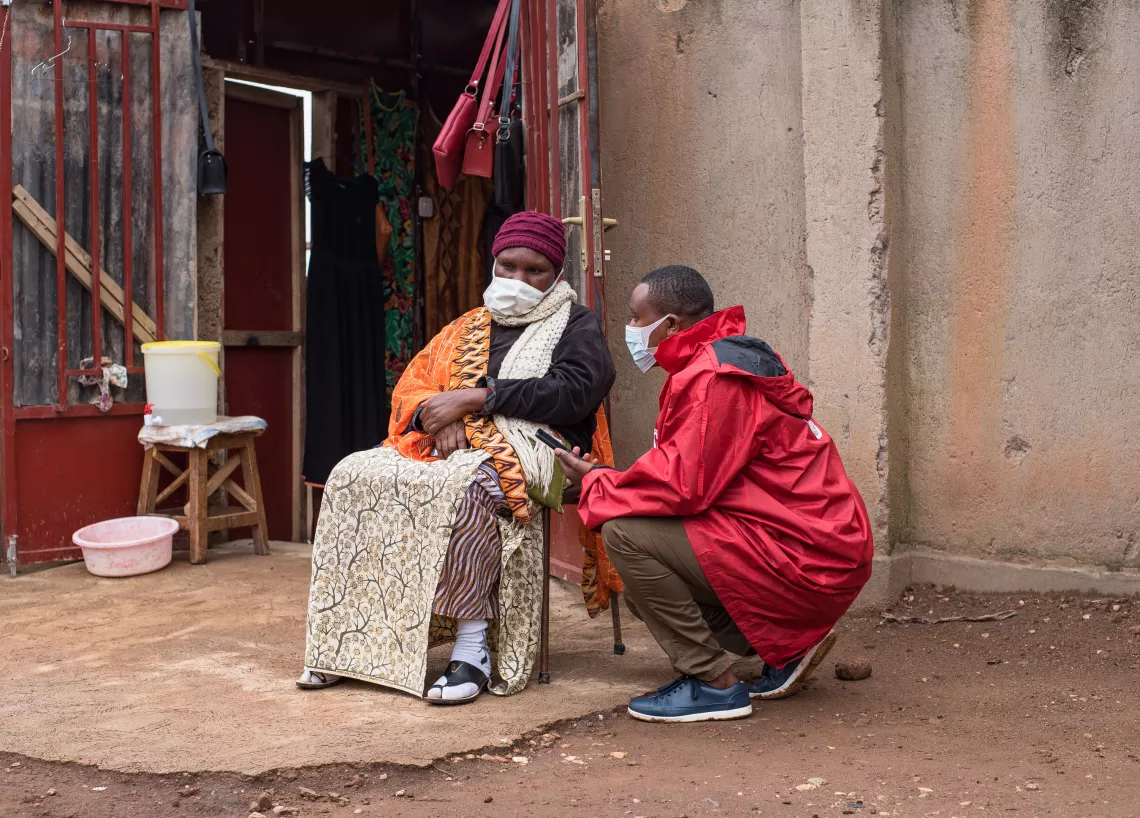
Thanks to the efforts of volunteers and data collectors such as Justine, Faustin and Valens, awareness is steadily increasing in communities all over Rwanda. UNICEF along with the government and other partners is working across the country to ensure that every family has access to the information they need about the virus and the vaccines that will help to bring the pandemic to an end.

